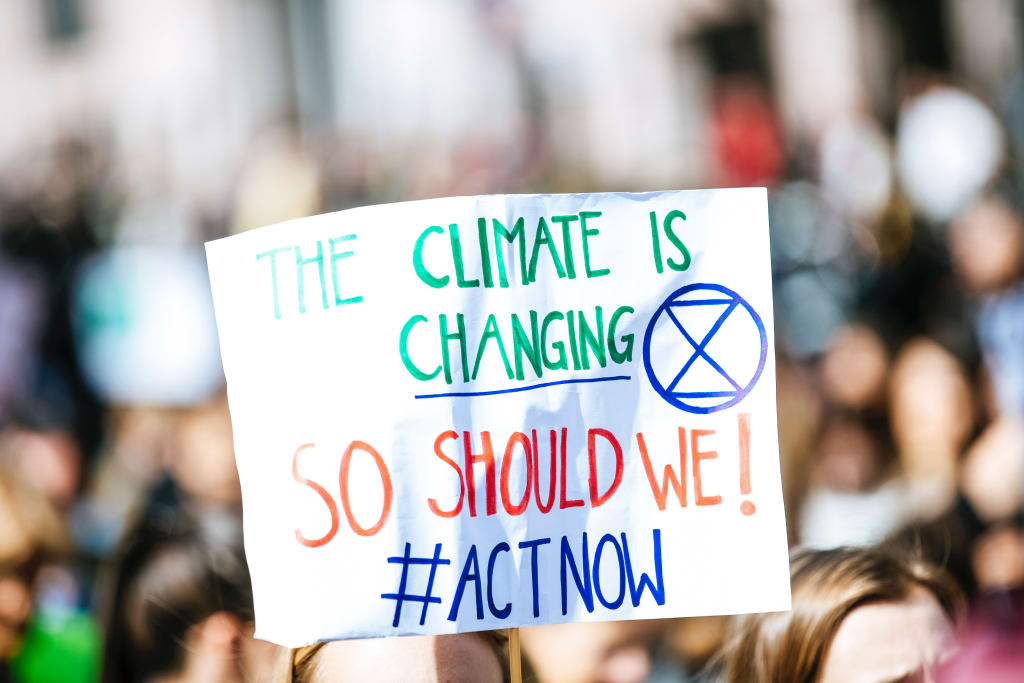Climate change and its impact on human health
Causes and Effects

Climate change is a well-documented phenomenon that has affected life on earth in various ways. From environmental degradation to disrupted weather patterns, climate change has shown its impact on almost all areas of life. However, one of the areas that get less attention but is equally vulnerable to climate change is human health. Climate change and its impact on human health are increasingly becoming concerns for health practitioners, policymakers, and the general public as we continue to experience its effects worldwide.
Climate Change and the Spread of Diseases
One of the most significant impacts of climate change on human health is the spread of diseases. Warmer temperatures and changing weather patterns have created a conducive environment for disease-carrying vectors such as mosquitoes, fleas, and ticks. The rising temperatures have led to altered breeding patterns, enabling these vectors to survive and reproduce faster. It has also caused the movement of vectors from their natural habitats to new and often cooler places, where they may encounter hosts that have no immunity to the diseases they carry.
Climate change has been linked to the rapid spread of mosquito-borne diseases such as Dengue, Chikungunya, and Yellow fever in various parts of the world. In addition, ticks that carry Lyme disease, a bacterial infection that causes severe fatigue and joint pain, are found in cooler regions such as the United Kingdom, where they are now flourishing and spreading. Not only do these diseases pose significant health risks to people, but they also put undue pressure on health systems, especially in regions where they are not commonly found and where there may be inadequate health infrastructure to cope with the increased caseloads.
Air Quality and Climate Change
Another way climate change affects human health is through poor air quality. The burning of fossil fuels, which is one of the main drivers of climate change, releases greenhouse gases that contribute to poor air quality. As a result, people living in areas with higher levels of pollution have higher incidences of respiratory illnesses like asthma, chronic obstructive pulmonary disease (COPD), and lung cancer.
Airborne pollen is another health threat associated with climate change. Higher carbon dioxide levels stimulate the growth of plants, creating an environment with more pollen. Pollen counts in the United States are expected to double by 2040, leading to more severe allergies and asthma attacks.
Heatwaves and Extreme Weather Events
Heatwaves and extreme weather events, such as hurricanes, floods, and wildfires, are becoming more frequent and more intense due to climate change. These events expose people to cyclones and tornadoes, floods and landslides, and food and water shortages, increasing the risk of illness, injury, and death. Extreme heatwaves, like the one that hit Europe in 2019, are also responsible for more deaths and hospitalizations. In some low-lying regions like Bangladesh, typhoons and flooding have led to the rapid spread of water-borne diseases such as cholera, leading to deaths and requiring urgent medical intervention.
The mental health impact of climate change
Climate change has a significant impact on mental health. The effects of climate change events such as floods, hurricanes, and wildfires are traumatic and can lead to depression, anxiety, and PTSD-like symptoms. Disasters can also lead to unemployment, displacement, and the breakdown of social structures, leading to lasting mental health problems.
The fear and uncertainty surrounding climate change can lead to eco-anxiety; it's different from the immediate impact of a natural disaster. It's a long-term fear of the impact of climate change on the planet and the future. When individuals feel overwhelmed and powerless in the face of environmental degradation, it can lead to physical and mental disorders, including insomnia, chronic stress, and depression.
Conclusion
Climate change is a global concern that affects everyone, regardless of their location, socio-economic status, gender, or age. Its impact on human health is widespread and multifaceted, with no clear end in sight. However, we can mitigate these effects by raising awareness about climate change, promoting sustainable practices, and investing in resilient health systems.
The world is at a critical juncture, and there's never been a better time to adopt eco-friendly lifestyles, reduce carbon emissions, and build resilience to climate change. The health of our planet and the health of our species are intertwined, and only by working together can we hope to ensure a healthy and sustainable future for generations to come. Let us all play our part.






Comments
There are no comments for this story
Be the first to respond and start the conversation.